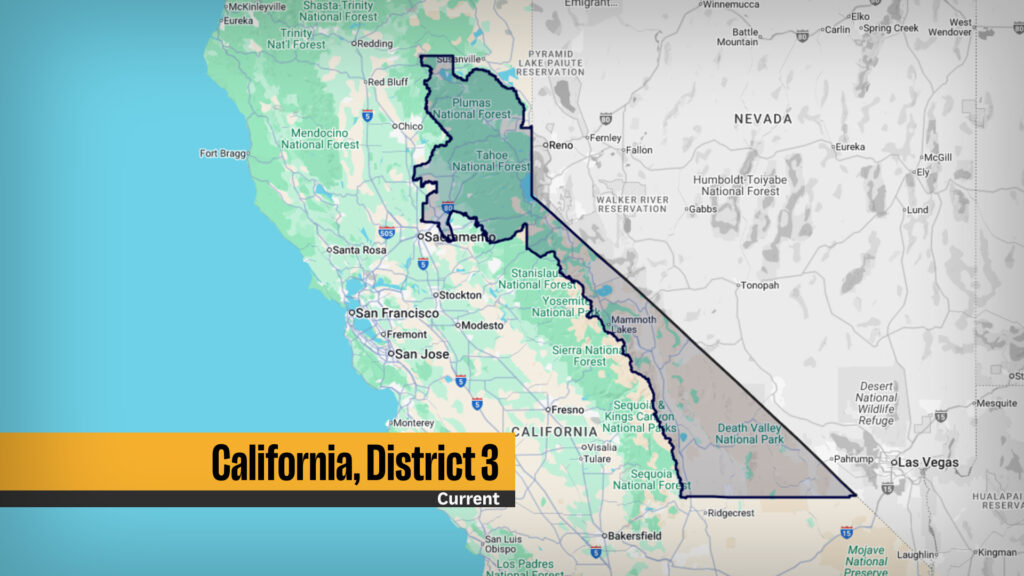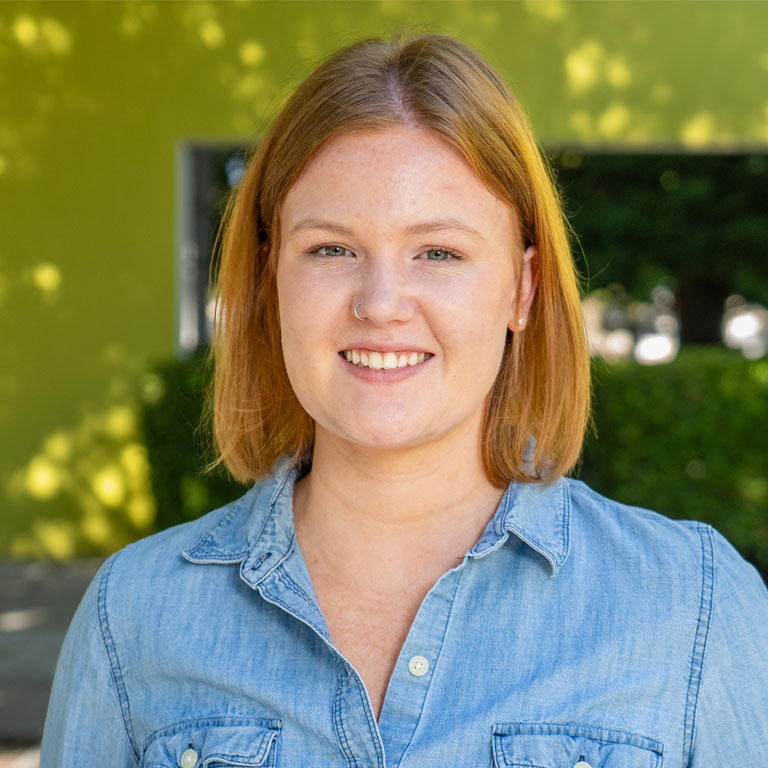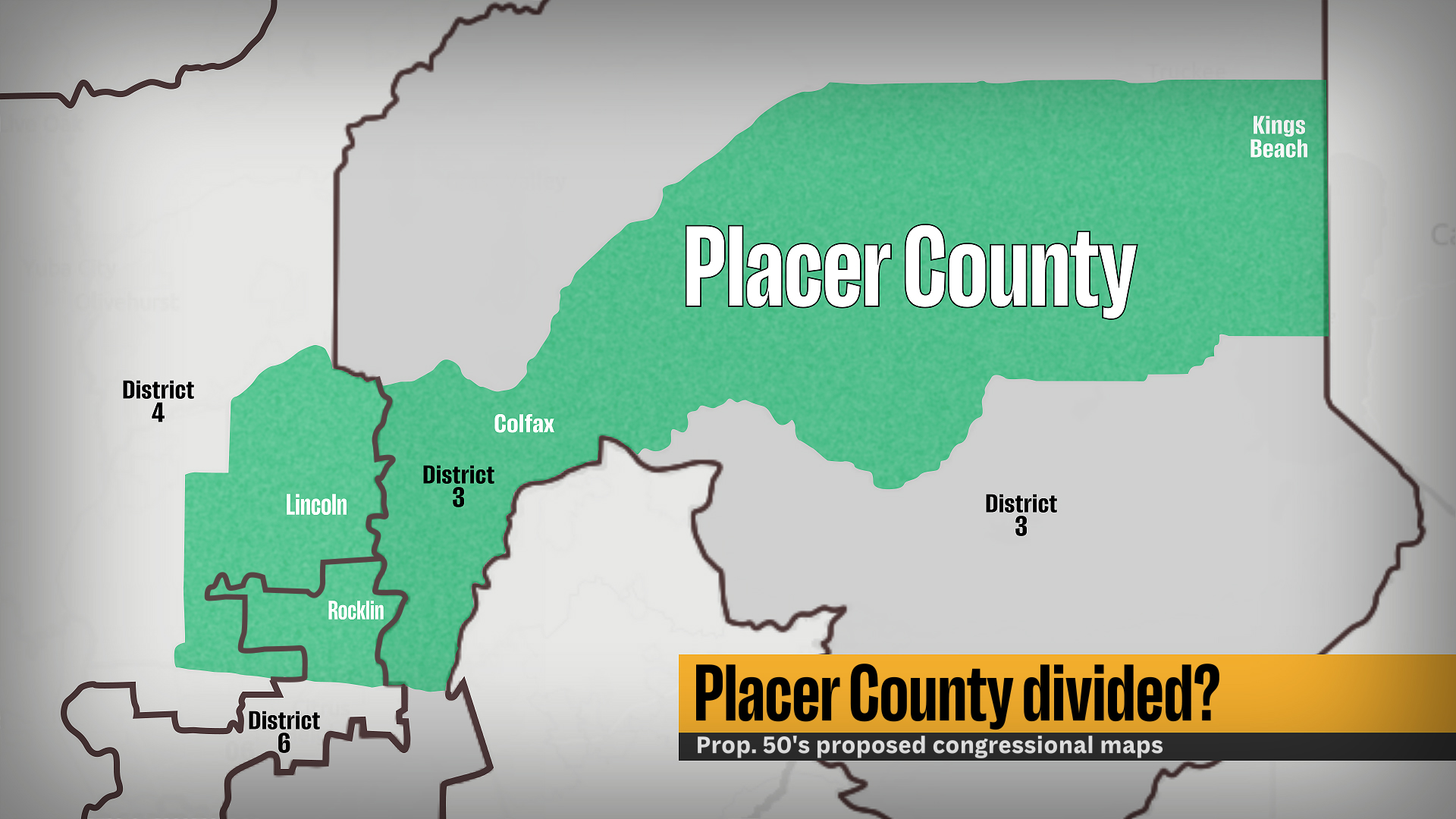The Abridged version:
- Some Placer County local governments have taken official positions against Proposition 50, the state redistricting measure California voters will decide Nov. 4.
- The proposition would divide the county among three congressional districts, and Placer political leaders say that would dilute their voice. The new district lines also would make it difficult for Rep. Kevin Kiley, who represents Placer County in Congress, to retain his seat.
- One political scientist said the objections are reasonable, while another said it could simply reflect partisan opposition to the Democrat-led redistricting effort.
Local government leaders in Placer County are vocally opposing Proposition 50, state Democrats’ controversial mid-decade redistricting proposal.
Some, like Placer Union High School District Board President Jessica Spaid, argue that because the proposed new map splits the county between three congressional districts, turning to their federal representative in times of need will be three times as difficult.
“For the record, we are a small district,” Spaid said in remarks at a school board meeting last month. “This lessens our voice.”
Others take issue with the measure’s price tag, specifically the estimated $251 million statewide cost of hosting a special, off-year election.
California’s measure came in response to Texas’ own summer session redraw, designed to give Republicans in the Lone Star State a leg up and the GOP in Congress a chance at holding onto its narrow House majority in 2026.
Rocklin protests their new district
In one of the most recent moves by a Placer County government, the Rocklin City Council weighed in Tuesday evening.
The council voted to approve sending a letter of concern, signed by Rocklin Mayor Jill Gayaldo and addressed to Gov. Gavin Newsom.
The letter urges Newsom to reconsider the measure — on which voting is already underway across the state — and laments the new congressional map that severs Rocklin from its Placer County neighbors.
Should Proposition 50 pass, Rocklin would move out of the 3rd Congressional District, currently represented by Republican Kevin Kiley, and into the 6th District, joining cities like Citrus Heights and neighborhoods in northern Sacramento.
“The result is an oddly shaped district that prioritizes political outcomes over the coherent representation of existing communities of interest,” Gayaldo wrote in the letter.

Carved out of Congress
Redistricting stands to shake up districts statewide, cleaving communities like Placer’s in order to give Democrats an even larger share of the California congressional delegation. The advantage to the state’s majority party is “as clear as it gets,” said Kimberly Nalder, a political science professor at Sacramento State University.
“It’s also the case that some members of Congress will be losing their seats, and it’s possible that (local officials) developed relationships with members who will no longer be in office once their seats are redistricted away,” Nalder said.
Kiley, who currently represents all of Placer County, was first elected to Congress in 2022. The 40-year-old conservative is originally from Granite Bay.
Under Proposition 50, Kiley is among the handful of California Republicans at risk of losing their seats in Washington.
School leaders wade into state politics
The Placer Union High School District — which covers most of Placer County — would stay largely within the 3rd District if the new maps are adopted.
However, slivers of the school district would join the more urban 6th Congressional District.
Spaid, who was elected to the Placer Union school board in 2022, said such fracturing would make it more difficult for Placer schools and leadership to appeal to their federal representation.
“Multiple representatives could offer diverse perspectives and funding avenues in theory,” Spaid said in a statement to Abridged, “but practice shows it often fragments accountability: no single Congress member fully owns regional priorities like school funding or roads, leading to diluted efforts.”
With this challenge in mind, Spaid pushed a resolution for the school board to oppose the state redistricting effort. Most of her fellow trustees agreed with her, and the motion passed 5-2, including votes from two student board members.
An uncommon space for school boards
Trustee David Underwood was one of two no votes.
“When I saw this on the agenda I was really shocked,” Underwood said at the time.. “Our role as a trustee is to provide and focus entirely on education. … We are not a political entity.”
Other school districts in California have taken an official stance on Proposition 50.
Some, including the San Diego Unified School District, voted to endorse the redistricting measure.
Spaid said the Placer Union board acted “well within policy and principle.”
“The motivation was simple: when something affects Placer County’s ability to speak with one voice in Washington, and by extension, our ability to advocate for education funding, it’s our responsibility to weigh in,” she said.
‘Reasonable objection’ versus ‘partisan motivations’
Placer County Supervisor Bonnie Gore expressed similar concerns during a Board of Supervisors meeting earlier this month.
And, she added, “Right now we have a local representative that has been elected by our local folks. … If we had three representatives, the challenge of actually having somebody get elected from our area is a little bit higher based on the gerrymandering.
“Which,” she continued, “means we don’t necessarily have a local voice.”
James Adams, a professor of political science at the University of California, Davis, said complications to Placer’s representation make for “a perfectly reasonable objection.”
“If you’re asking about whether Prop. 50 improves democracy in California by itself, I think the answer pretty clearly is, it does not,” Adams said. “Because it creates districts that are drawn along partisan lines that are designed to benefit the Democrats.”
But, Nalder said, these arguments by local boards may also be a “smokescreen” for more partisan objections.
“Realistically, we’re looking at a red county opposing a ballot measure that gives advantages to Democrats,” she said. “I mean, it really comes down to the partisan motivations.”
Savannah Kuchar is a reporter covering education. She came to Sacramento to be a part of the Abridged team and contribute to a crucial local news source.

